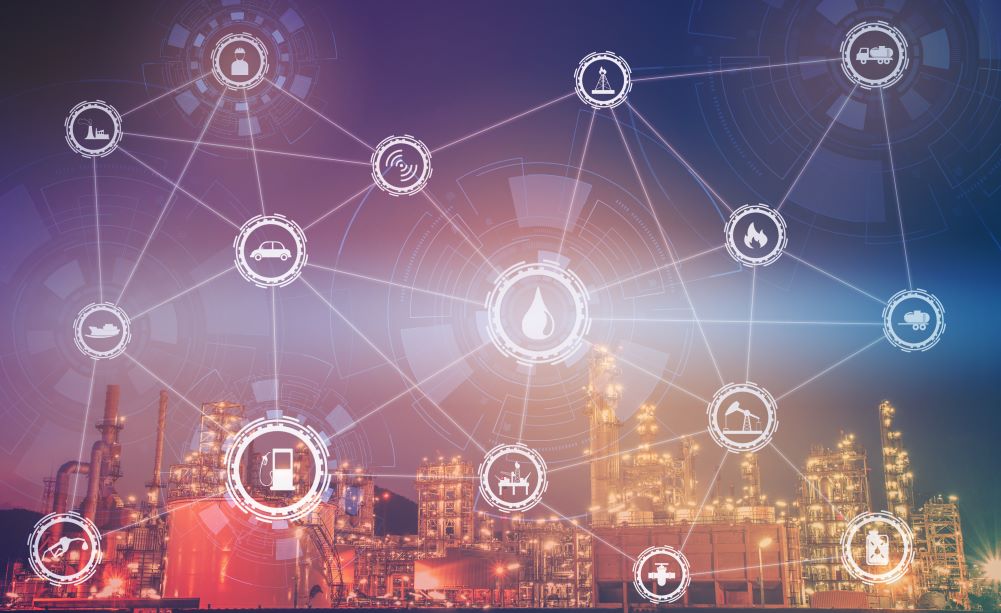2022 AMPc Opening & Keynote Address: Featuring Manufacturing Viewpoints from Industry, Academia & Government
This keynote address will feature the following speakers:
 Billy B. Bardin, Global Digitalization Director, The Dow Chemical Company
Billy B. Bardin, Global Digitalization Director, The Dow Chemical Company
 Richard Braatz, Edwin R. Gilliland Professor, Massachusetts Institute of Technology (MIT)
Richard Braatz, Edwin R. Gilliland Professor, Massachusetts Institute of Technology (MIT)
 David C. Miller, Senior Fellow, Strategic Systems Analysis and Engineering, U.S. Department of Energy’s National Energy Technology Laboratory (NETL)
David C. Miller, Senior Fellow, Strategic Systems Analysis and Engineering, U.S. Department of Energy’s National Energy Technology Laboratory (NETL)
Don't miss out on the opportunity to hear from these distinguished keynote speakers.
Keynote Presentations:
1. Deriving Value from Digital and Advanced Manufacturing Technology
Billy B. Bardin, Global Digitalization Director, Dow
Digitalization offers technologies and lessons to be applied in the process industries that will improve safety, reliability, productivity, sustainability, and profitability. Keys to achieving success include properly understanding the value proposition and return on potential investments, organizational change management, as well as working through much of the hype surrounding these technologies to focus on true opportunities to be addressed. The combination of fundamental chemical engineering principles with digital technologies allows engineers and operators to develop greater insights into facility performance and to develop routes to process improvements or intensification. Robotics, advanced optimization, novel connected devices, and connected workers with new skills contribute to the creation a new ecosystem for operations. Beyond operations, digital transformation must occur across companies, organizations, and value chains to ensure data continuity and a continuous digital thread. This presentation will highlight capabilities and approaches deploying advanced manufacturing solutions in the process industries.
2. Optimizing Decarbonized Industrial and Energy Systems
David C. Miller, Senior Fellow for Strategic Systems Analysis and Engineering, U.S. Department of Energy’s National Energy Technology Laboratory (NETL)
Over the next two decades, hundreds of billions of dollars will be invested in new, 21st century industrial and energy systems to meet the U.S. 2035 and 2050 decarbonization goals. These new processes and systems will be more dynamic and interconnected than ever before, offering unprecedented opportunities for innovation and the development of novel integrated systems. Such systems will extend significantly beyond current experience, incorporating advances in process intensification and advanced manufacturing. Thus, heuristic and evolutionary development approaches based on traditional systems will be insufficient to identify the most promising technologies, designs, and operating characteristics. Instead new approaches for the design and optimization of complex, interacting multiscale systems will be needed to ensure holistic understanding of the opportunity space and to accelerate development of the best technology options. The Institute for the Design of Advanced Energy Systems Integrated Platform (IDAES) and the Design Integration and Synthesis Platform to Advance Tightly Coupled Hybrid Energy Systems (DISPATCHES) were developed as open-source, fully equation-oriented platforms to enable the optimization of new designs and dynamic operations to support process innovation that bridges multiple scales, including interactions among industrial processes and the bulk power system. These computational approaches enable the design and optimization of complex integrated energy and industrial systems, accelerating their development and deployment to support rapid decarbonization of the energy and industrial sectors.
3. New Directions in Advanced Manufacturing Systems
Richard Braatz, Edwin R. Gilliland Professor, Massachusetts Institute of Technology (MIT)
Increased attention has been directed in recent years towards advanced manufacturing systems technologies, towards making advances in product quality and productivity, under such efforts known as Digital Manufacturing, Smart Manufacturing, and Industry 4.0. This presentation describes an integrated approach to accelerating process development that involves (1) greatly increased understanding and optimization of each unit operation while exploiting process intensification, (2) automated high-throughput microscale technology for fast process R&D, (3) plug-and-play modules with integrated control and monitoring to facilitate deployment, (4) dynamic models for unit operations for plant-wide simulation and control design, and (5) smart process data analytics to automatically select and apply the best data analytics and machine learning methods for a process dataset based on its characteristics and the user objectives. The strategies are illustrated in applications to fully automated integrated modular systems for (bio)pharmaceutical manufacturing that have been developed, constructed, and experimentally validated at the Massachusetts Institute of Technology.

